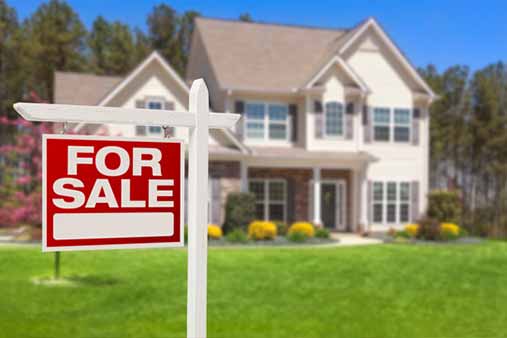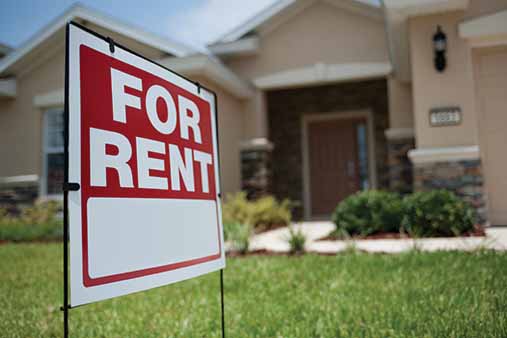Different Types of Home Loans for Small Business Owners
As a small business owner, you might want to purchase a house for investment purposes, or for personal use. Knowing what type of mortgage will best fit your current and future finances is key to finding the right home to fulfill your goals.
As there are many types of home loans, it’s good to get to know the pros and cons of each before making a decision. Different mortgages have varying requirements, and finding the right home loan for your needs can save you a ton of money in the future.
Read on to learn about the five types of mortgage loans for entrepreneurs looking to buy a home.
Recommended: Get started with a dedicated team of brokers looking to make securing a mortgage a personable experience. Contact Giniel Financial Group today.

Types of Mortgages
There are five main types of mortgages that will be covered in this article: conventional, fixed-rate, adjustable-rate, government-insured, and non-conventional mortgages.
We will go over the pros and cons and discuss what type of homebuyer might benefit most from each type of mortgage. By the end, you’ll have a clear path forward of what type of home loan will best suit your needs, whether you’re looking to buy a home for personal use or for your business.
The Five Types of Mortgages:
- Conventional Mortgages
- Fixed-Rate Mortgages
- Adjustable-Rate Mortgages
- Government-Insured Mortgages
- Non-Conventional Mortgages
Conventional Mortgages
All mortgage types fall into two categories: conforming loans and non-conforming loans. All conventional mortgages are conforming loans. This means they are not backed by the federal government and can be purchased by Fannie Mae or Freddie Mac.
There are clear conventional home loan requirements and less wiggle room when it comes to qualifications for this type of mortgage. However, conventional mortgages often come with less risk and lower interest rates — all because the lender can sell the loan.
Even as the most popular type of mortgage, conventional loans come with tighter credit score and debt-to-income (DTI) ratio requirements. If you have good credit, good income history, can prove stable employment, and be able to make a 3% down payment, you can easily qualify for this type of loan.
That being said, should you pursue buying a home with 3% down, you will need to purchase private mortgage insurance (PMI). Even though PMI rates are lower for conventional loans, you can still avoid them by having a down payment of 20% or higher.
Pros of Conventional Mortgages:
- Typically a lower interest than non-conforming loans.
- Due to lower interest rates, the overall borrowing cost is also lower than other loan types.
- Down payment can be as low as 3% for highly qualified borrowers.
Cons of Conventional Mortgages:
- If your down payment is under 20% you’ll have to purchase PMI.
- Require a minimum credit score of 620 and low DTI.
Homebuyers Who Might Benefit From Conventional Mortgages
Most borrowers will find conventional mortgages to be a good choice, especially for those who can afford a large down payment and are looking for lower interest rates. Even if you can’t shell out a 20% down payment, if you can prove stable income, have strong credit, and can pay at least 3% down, this type of loan is still a great fit.
Should you be eligible in every other way but just don’t have enough for a down payment, you might want to consider a government-insured mortgage.
Want a deeper dive into what conventional mortgages have to offer? Be sure to read our What Are Conventional Loans article.
Fixed-Rate Mortgages
Fixed-rate loans are another type of conventional mortgage. Should you be on the hunt for your forever home, this type of loan will be an ideal fit. These loans have the same interest rate and payment throughout the entirety of the loan duration. Often, these loans come in 15-year and 30-year chunks.
A 30-year fixed loan offers the borrower stability. The amount paid each month might wobble based on property taxes and insurance rates but should be steady and doable. However, if you want to pay off your loan faster and can afford a steeper monthly payment, a 15-year fixed loan might be more your speed — and will cut down on interest rates.
It’s best to get to know your budget before settling on a shorter- or longer-term loan.
Pros of Fixed-Rate Mortgages:
- Monthly payments remain the same for the duration of the loan.
- Short-term fixed-rate loans help build fast equity and save money on interest.
- Less-risky than adjustable-rate loans.
Cons of Fixed-Rate Mortgages:
- Could come with higher interest rates overall, especially if your home is in a high-interest area.
- Not a good fit if you plan to quickly re-sell the house.
Homebuyers Who Might Benefit From Fixed-Rate Mortgages:
If you’re planning on purchasing a home you’d like to be in for a while, a fixed-rate mortgage might be the best fit. Not only does it provide a consistent view of how much you’ll pay each month, but it can also help you build equity.
The only downside here is you’re stuck with the initial interest rate for the duration of the loan. The best way to ensure you’re not overpaying in interest is to speak to a local home loan expert like Giniel Financial Group.
Adjustable-Rate Mortgages
In the other direction of a fixed-rate mortgage, an adjustable-rate mortgage (ARM) is a loan with an interest rate that fluctuates based on the market. All ARMs begin with a fixed rate for the first 5-10 years, and then rise and fall with market conditions. This makes these loans both enticing and risky. Once the rate resets you need to be sure you’re able to pay the mortgage, should it be higher than expected.
However, interest rates for ARMs are often lower than fixed-rate mortgages in the beginning stages of repayment, allowing you to possibly save quite a bit of money. Some ARMs have a rate cap to ensure your monthly payment doesn’t exceed a specific threshold and to provide some stability. But, these rate caps work both ways and can limit how low your interest rate can go down.
This is another loan where doing your finances ahead of time will help you better prepare. You may not be able to sell or refinance your home before your ARM adjusts to market conditions. Be sure to speak to your lender, as they will better calculate how rates are changing and can help you feel more confident in preparing for the future.
Pros of Adjustable-Rate Mortgages:
- Gives lower interest rates for the initial introductory period.
- Rate caps can help protect your rate from rising too high in a volatile market.
- Paying extra on your loan early can save you thousands later.
Cons of Adjustable-Rate Mortgages:
- If the rate increases, it can dramatically raise your monthly payments.
- Rate caps can also prevent your rate from dipping too low, potentially costing you money.
Homebuyers Who Might Benefit From Adjustable-Rate Mortgages:
If you’re looking to purchase a starter home and will most likely move before the end of the full term of your loan, an ARM might be just what you’re looking for. Adjustable-rate loans are also beneficial if you plan on paying extra toward your loan at the start, as this can give you some extra cash to put toward your principal.
Government-Insured Mortgages
Government-insured mortgages fall into the category of non-conforming loans. There are many different types of non-conforming loans, but here we will discuss three kinds of government-insured mortgages: FHA loans, VA loans, and USDA loans.
FHA Loans
Insured by the Federal Housing Administration, FHA loans offer those with low credit scores a chance to buy a home with a small down payment. Individuals with a credit score of 580 can qualify for a down payment as low as 3.5%. However, some lenders will require a higher down payment the lower the credit score.
VA Loans
Insured by the Department of Veterans Affairs, VA loans allow qualified individuals to buy a home with $0 down and significantly lower interest rates. To qualify, you must meet the service requirements of the Armed Forces or National Guard.
USDA Loans
Insured by the United States Department of Agriculture, USDA loans have fewer requirements than other government loans. Often, qualified borrowers can buy a home with no money down. To qualify, you must purchase a house in a rural or suburban area and meet specific income requirements.
Pros of Government-Insured Mortgages:
- There are ways to save on interest, down payments, and closing costs.
- These come with looser qualification requirements than conventional mortgages.
Cons of Government-insured Mortgages:
- Even with less-restrictive qualifications, specific criteria must be met to qualify.
- Often come with required upfront funding fees and can result in higher borrowing costs.
Homebuyers Who Might Benefit From Government-Insured Mortgages:
If you don’t qualify for a conventional loan, these types of mortgages will help you gain access to getting a mortgage for your future home. These types of loans are also good for those who don’t have a ton of savings but are still looking to afford a house.
Non-Conventional Mortgages
The final two non-conventional mortgages on this list also fall into the non-conforming category; however, they differ from government-insured mortgages. These loans are for those looking to purchase high-value property or might not qualify for conventional or government-insured mortgages.
Jumbo Loans
Jumbo loans are what they sound like — a type of loan that’s larger and worth more than current conforming mortgage loan limits. Should you be interested in buying high-value property, a jumbo loan allows you to take out millions of dollars instead of hundreds of thousands.
Even with this larger loan amount, jumbo loan interest rates are typically about the same as conforming loan rates. However, they are more difficult to qualify for — you will need an excellent credit score and a low DTI to be considered for a jumbo loan.
Pros of Jumbo Loans:
- You can borrow more money for expensive property.
- Interest rates are similar to that of smaller loans.
Cons of Jumbo Loans:
- Must have a credit score of 700 or higher to qualify.
- Must have significant assets and a low DTI to qualify.
- Down payment is often between 10% and 20%.
Homebuyers Who Might Benefit From Jumbo Loans:
If you need to borrow more than $650,000 to purchase luxury property, this loan is what you’ll need. You must have a good credit score, low DTI, and the assets to qualify for this loan.
Non-Qualified Mortgage
If you don’t think you’ll qualify for a conventional mortgage or government-insured mortgage, a non-qualified mortgage (non-QM) might be the right fit for you. This type of home loan is for those who might not have all the necessary documentation — a struggle many self-employed individuals face.
Non-QM loans are basically as easy to apply for as a traditional loan. Individuals with low credit scores or those who work non-traditional jobs can apply for these types of mortgages without having to show as much proof of income. However, non-QM loans are not backed by the government and cannot be bought by agencies like Fannie Mae or Freddie Mac, adding a layer of risk to them.
Pros of Non-Qualified Mortgages:
- Buyers with low credit scores can qualify.
- Less income documentation required.
- Similar application process to qualifying mortgages.
Cons of Non-Qualified Mortgages:
- Often have higher interest rates and fees.
- May be more difficult to find.
- Cannot be sold to Fannie Mae and Freddie Mac.
Homebuyers Who Might Benefit From Non-Qualified Mortgages:
If you have the income to make your mortgage payments on time but can’t get a conventional mortgage, this type of loan might be the best fit for you. Non-QM loans are a great fit for retirees, the self-employed, foreign nationals, those with poor credit, and those with a higher DTI.
The Bottom Line
As you can see, whether you own a business or are looking for your own personal loan, there’s a mortgage out there for most any type of individual or entrepreneur. If you’re just starting your journey to home ownership, we recommend finding a broker who offers a personal touch. Be sure to search your area or check out our recommended services.


